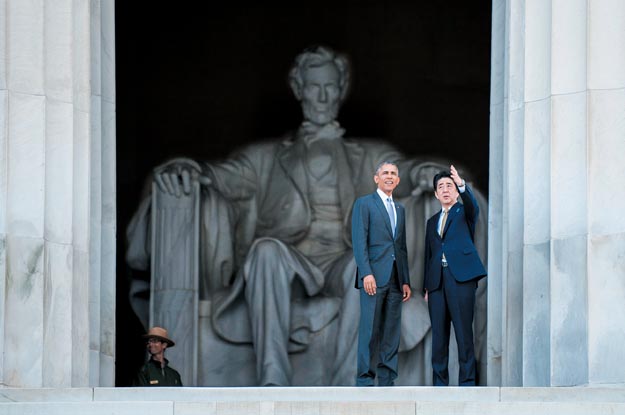As his presidency nears a close, Barack Obama hopes the Trans-Pacific Partnership (TPP) will be one of his key legacies.
Despite his vocal skepticism about free trade agreements during his first campaign for the presidency, Obama now argues that the TPP, which aims to reduce barriers to trade among 12 countries bordering the Pacific (with the exception of China), will also lead to standardized rules on labor, environmental safeguards and foreign investment that will benefit consumers.
But the principal stumbling block has been winning congressional approval for fast-track authority on negotiating trade agreements—a mechanism that limits Congress to a “yes” or “no” vote on any deal. In effect, it cedes the negotiating details to the president’s team—a concession that Congress has historically been wary of giving presidents and that is a particular sticking point as the country heads into a 2016 election year in which candidates from both parties have put preserving American jobs at the top of their campaign agenda. Amid a flood of contributions to U.S. Senate campaigns from pro-TPP corporations, Congress approved fast-track— officially known as Trade Promotion Authority (TPA)—in June despite vocal opposition from lawmakers in both parties.
Indeed, the Obama administration’s rush to pass the TPP this year has met significant resistance, and the potential deal has been plagued by controversy since negotiations—shrouded in secrecy—first commenced in 2008. Leaked details of the proposed deal have already spurred widespread protests across the United States. Many of Obama’s traditional allies in Washington have led the pushback to his TPA campaign. “The American people should be allowed to weigh in on the facts of the TPP before members of Congress are asked to voluntarily reduce our ability to amend, shape or block any trade deal,” wrote Senators Elizabeth Warren (D-MA) and Sherrod Brown (D-OH) in a letter to the president. Another letter—signed by 151 House Democrats— said that fast-track was “not appropriate for twenty-first century agreements and must be replaced.” While Republicans have traditionally supported free trade, members of the right-of-center Tea Party say they are loath to grant more authority to a president they say has already abused his executive powers.
Sovereignty concerns underlie many critics’ unease about the TPP, which includes clauses that affect domestic policies such as intellectual privacy and government procurement. Critics say these provisions would put downward pressure on existing laws in member countries, resulting in weakened food safety standards, environmental protections and labor laws. Furthermore, leaked provisions on investment would allow multinational corporations in signatory countries to sue TPP member governments whose laws limit their expected profits.
Opponents fear that prioritizing multinationals’ market prospects will ultimately transfer sovereignty from governments to corporations.
These concerns are not confined to the United States. The Australian activist group GetUp! labeled the TPP “the dirtiest deal you’ve never heard of.” In Chile—one of three Latin American countries to be included in the negotiations, along with Peru and Mexico—the web advocacy group Derechos Digitales (Digital Rights) has led the opposition. Rayén Campusano, the group’s manager of public policy, told Americas Quarterly that TPP negotiations have “opened the door to the revision of current and future laws, regulations and procedures according to the tastes of U.S. consultants.” Campusano added that since Chile already has free trade agreements with most of the countries negotiating the TPP, the country’s net economic gain would be “marginal.”
Another challenge that has surfaced recently is whether and how the TPP will address China—which, although not included in the negotiations, looms as a powerful player in the Pacific economy. Meanwhile, groups across the hemisphere continue to push for transparent trade policies that spur growth, maintain citizen autonomy and create—rather than outsource—jobs. As the TPP inches closer to reality, leaders must decide how, and if, they will take such demands into account.




